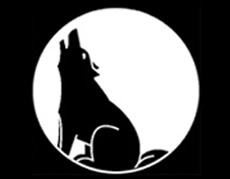
When Nic Dimond, current Artistic Director of Strawdog Theatre, first saw a show at this tiny Lakeview Storefront in 1993 he was startled by what he saw as a low production standard surrounding a strong acting ensemble, and he decided to do something about it. With a background in set design, Dimond offered his services as resident set designer and changed the course of the company, "I just didn't want people distracted by the falling down cardboard sets." Now preparing for its 22nd season, Strawdog has been a mainstay of the Chicago Storefront Theater community since its inception, partly through an ability to diversify its efforts over the years without outgrowing its intimate home.
"One thing that's been really thrilling for me," Dimond explains, "as someone who has watched the Chicago theater scene for the last couple of decades, is that it really started off as an actors' town, but a bunch of inventive directors have been able to add in a more visual style." Asked whether he prefers one style over the other—gutsy, unadorned ensemble acting or director/designer focused visually rich theater—Dimond insists, "They're not mutually exclusive... running a storefront is too hard to do for vanity." It's this multi-tiered approach that has guided Strawdog through a spate of recent critical and commercial successes such as last season's Cherry Orchard and Red Noses. While the two plays are wildly divergent (one is a naturalistic domestic classic, the other a circus-like fantasia on the Bubonic Plague) both drew strength from inspired theatrical design and the resources of Strawdog's acting ensemble.
Strawdog's slogan, "The whole wide world in a little black box," does a good job of encapsulating what Dimond calls the "supreme jujitsu" available to theater in tiny spaces (Strawdog reaches capacity at about 70 seats). "In a tiny space immersion is easy. We can really create a world: step through the door and I'm transported…and it's more of a surprise." Yet the intimacy of its space has not restricted the sprawling diversity of its operations. In addition to a season of three full-scale productions, Strawdog hosts a writing workshop for ensemble members to create original pieces and a late night performance series to showcase both these pieces and others from companies and individuals around Chicago . These performances tend to be shorter, and involve music and laughter, "That's a genuine connection too," says Dimond, "A different kind of intimate connection with our ensemble. You can see how these familiar artists throw down their own stuff."
However wide-ranging their programming becomes, for Dimond the best theater represents "not a challenge of breadth, but a challenge of depth . It's not ‘how many things you can do.' I want to jam one thing and get all the way to the bottom of it." Dimond credits the acting ensemble as a big part of how Strawdog manages to achieve that depth. He explains that in a typical rehearsal period the first few weeks are wasted with the actors "just getting to know everybody. We all know each other, we can skip that and go deeper." And don't expect the current economic climate to cause the company to pull any artistic punches. Dimond slyly shrugs, "that's not who we are. Strawdog has been in a recession for the last twenty years."
For more information on Strawdog check out their website www.strawdog.org, become a fan on Facebook, or follow them on Twitter.
Benno Nelson
You can read more of Theatre In Chicago contributor Benno Nelson's writing at The@er (http://the-at-er.blogspot.com)
Full Storefrontal
Read the other articles in Benno Nelson's "Full Storefrontal" series that focuses on small theatre companies around Chicago on the Full Storefrontal page.

 Follow Us On Twitter
Follow Us On Twitter